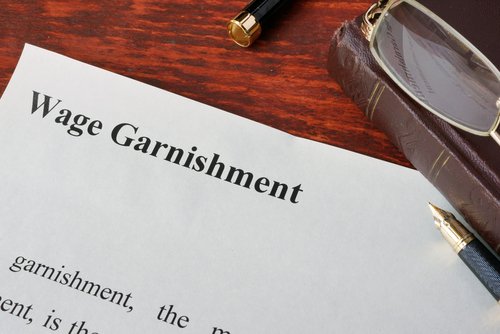When you have a wage garnishment, you’re losing money paycheck after paycheck to satisfy a creditor. When your paycheck is being drained away by old debt, it can be a frustrating experience and make it more difficult to get back on your feet financially.
About 7% of the U.S. population has had their wages garnished at some point in their careers. Many people are able to use bankruptcy to stop the garnishment and improve their financial outlook. Here’s how it works.
What Does A Bankruptcy Plan Do?
By filing for bankruptcy, you initiate an automatic stay, or halt, to debt collection activities by creditors. While you address your bankruptcy plan, creditors must stop their collection efforts against you. When wage garnishments stop, people are typically able to regain about 25% of their take-home pay that was previously taken by the garnishment. This goes a long way toward making a new financial plan.
Will I Get Back the Wages They Already Took?
While bankruptcy can’t change the past, it can change the future. The good news is that bankruptcy immediately stops many types of garnishments and often ensures you won’t face future garnishments from existing creditors. However, filing for bankruptcy doesn’t address old garnishments and amounts that have already been collected from you. Although you won’t get the old wages back, you will protect your future paychecks by filing for bankruptcy.
What About Other Garnishments?
Some types of garnishments can’t be stopped by bankruptcy. For example, if your wages are being garnished for child support, the garnishment will not generally stop. Sometimes bankruptcy can stop some kinds of garnishments temporarily, like in the case of student loans or some kinds of taxes. However, these types of garnishments may resume after discharge.
With a Garnishment, Which Type of Bankruptcy Should I Choose?
It is very important to make the right choice between Chapter 7 and Chapter 13 bankruptcy if you have a wage garnishment in place. A Chapter 7 bankruptcy can deal with and discharge most type garnishments. However, a Chapter 7 case will only stop garnishments for student loan debt or some taxes for three or four months. After your Chapter 7 discharge, these non-dischargeable debts can resume. Chapter 13 bankruptcy is more likely to halt these kinds of garnishments for a much longer period of time. To make the right choice for your situation, consult a bankruptcy attorney who can examine your finances and make recommendations with your best interests in mind. Your bankruptcy plan will take the garnishment into account as you find a new path forward.
Sawin & Shea – Indianapolis Bankruptcy Attorneys
Filing for bankruptcy is not the end. It’s the beginning of a new financial life for you. The Indiana bankruptcy attorneys at Sawin & Shea can help you get rid of the overwhelming debt and advise you on life after bankruptcy. We are here for you during this life-changing process. Please do not hesitate to call us today at 317-759-1483 or send an email for a free consultation. We are ready to help.



